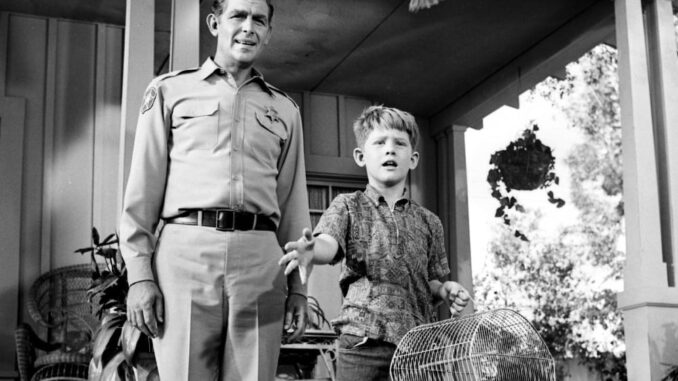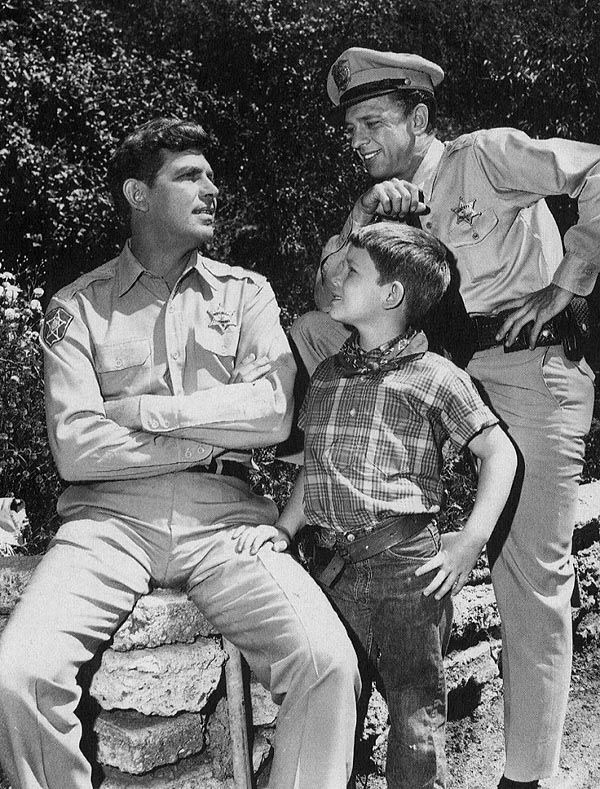
Introduction: What Does Mayberry Have To Do With Modern Sports?
You might be thinking, “What could a black-and-white sitcom from the 1960s possibly teach us about sports?” A lot, actually. The Andy Griffith Show wasn’t just a nostalgic trip down a dirt road—it was a goldmine of values, lessons, and principles that still hit home today, especially in the world of athletics.
From teamwork and humility to leadership and perseverance, Mayberry’s small-town wisdom offers some of the most powerful teachings we can apply both on and off the field. So whether you’re a coach, an athlete, or just someone who loves sports and great storytelling, this deep dive is for you.
1. Respect Is the Foundation of All Teams
Barney Fife might have fumbled a lot, but Andy Taylor always treated him with respect—even when correcting him. In sports, respecting teammates, coaches, and opponents lays the foundation for healthy competition and real growth.
Why Respect Matters in Sports
-
Builds team trust
-
Keeps egos in check
-
Prevents internal conflict
-
Encourages open communication
2. Discipline Over Talent: Aunt Bee’s Kitchen Wisdom
Aunt Bee didn’t win awards for her cooking early on (just ask Opie), but she worked hard at it. The same goes for sports. Natural ability only takes you so far—discipline is what builds champions.
Lessons from Aunt Bee for Athletes
-
Practice matters more than perfection
-
Keep showing up, even when it’s hard
-
Improvement is a journey, not an event
3. Andy Taylor’s Quiet Leadership Speaks Volumes
Sheriff Taylor never barked orders or threw tantrums. He led with calmness, clarity, and confidence. Athletes and coaches can learn more from his style than from any modern-day motivator yelling from the sidelines.
Leadership Traits to Learn from Andy
-
Lead by example, not command
-
Stay cool under pressure
-
Speak less, listen more
4. The Importance of Community and Team Spirit
Mayberry thrived because people helped one another. That same sense of community is what separates good teams from great ones. It’s not about who scores the most—it’s about who shows up for their team.
5. Barney Fife and the Power of Belief
No one believed in himself more than Barney—even when he clearly couldn’t back it up. While we may chuckle at his antics, Barney teaches us a powerful lesson: belief can be a spark, but it needs to be backed by preparation.
Belief in Sports
-
Confidence is key, but not without hard work
-
Overconfidence can hurt performance
-
Trust your training, not just your instincts
6. Opie’s Fishing Lesson: Patience Wins the Day
Who could forget Andy and Opie’s fishing trips? Those quiet scenes weren’t just filler—they were packed with patience, focus, and presence. Every athlete knows that growth doesn’t come overnight. Success takes time.
How Patience Pays Off in Sports
-
Recovery from injury
-
Skill-building during practice
-
Managing losing streaks
7. Accountability—Owning Your Mistakes Like Opie Did
Opie once killed a bird with his slingshot and felt guilty. Instead of hiding it, he took responsibility and made things right. That’s the kind of integrity sports needs more of.

8. Coach vs. Sheriff: What Makes a Great Mentor
Andy didn’t just enforce rules; he guided people. That’s the hallmark of a good coach. He didn’t need whistles or fancy playbooks—he had empathy, patience, and a deep understanding of people.
Traits of a Great Sports Coach
-
Emotional intelligence
-
Knowing when to push and when to pull back
-
Developing character, not just skills
9. Humor Keeps the Game Light
Barney’s comic relief reminded us that laughter breaks tension. Even in high-stakes games, a light-hearted moment can relieve stress and help teams bounce back.
10. The Power of Humility: No One Was Too Big in Mayberry
No one in Mayberry walked around like a superstar—even Andy, the town’s sheriff. In sports, humility is rare but powerful. It creates space for learning and builds stronger team bonds.
11. Listening Is a Superpower: Andy’s Conversations Proved It
Andy listened before reacting. Athletes and coaches can benefit from doing the same—whether it’s listening to teammates, reading the opponent’s moves, or hearing constructive feedback.
12. Character Over Reputation
In Mayberry, who you were mattered more than what people thought of you. In today’s sports culture of fame and followers, that’s a message worth echoing. Character leads to lasting success, while reputation can be fleeting.
13. Simple Living, Big Wins
Life in Mayberry was simple. No distractions. No noise. Just the basics. In a sports world full of endorsements, media, and pressure, going back to basics—hard work, teamwork, discipline—can be the secret edge.
14. Losing Gracefully: Mayberry Didn’t Hold Grudges
Whether it was a bake-off or a local baseball game, the folks in Mayberry didn’t dwell on losses. They laughed, they learned, and they moved on. That’s the spirit we need in sports.
15. Never Forget Why You Started
Just like Opie enjoyed a simple game of catch, athletes should never lose sight of why they started playing in the first place. The passion. The love of the game. Not the fame.
Conclusion: What Would Andy Do?
At the heart of The Andy Griffith Show is a moral compass that still points true today. In sports and in life, the lessons of Mayberry—honesty, hard work, humility, and heart—are the real playbook. Whether you’re coaching a team, leading a family, or just trying to make sense of this chaotic world, maybe the best question to ask is this:
What would Andy Taylor do?
If we lead like Andy, believe like Barney, and stay curious like Opie, there’s no game we can’t win.
FAQs
1. How can I use “The Andy Griffith Show” lessons in coaching youth sports?
Start by emphasizing respect, patience, and character. Teach players that who they are off the field matters just as much as what they do on it.
2. Is “The Andy Griffith Show” still relevant for modern athletes?
Absolutely. The values of honesty, teamwork, and resilience are timeless—and more necessary than ever in today’s competitive sports environment.
3. What episode teaches the most about leadership?
Look for episodes where Andy handles Barney’s mistakes or guides Opie through challenges. They showcase calm, understanding leadership in action.
4. Can watching this show really make me a better athlete or coach?
It won’t teach you how to throw a touchdown, but it will remind you why you play the game in the first place—and how to do it with integrity.
5. Why compare a sitcom to sports at all?
Because stories shape values. And no matter the era, the lessons that stick are the ones that come wrapped in laughter, heart, and a little bit of Mayberry magic.